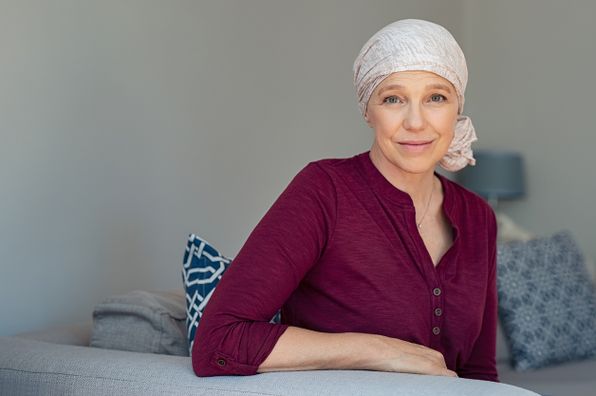If you have been diagnosed with and treated for cancer, you may have felt anxiety, depression and stress as you dealt with your condition. These are all completely normal and part of the path to recover. What is surprising to some is that these feelings may not just go away once you are declared cancer-free.
Here are some of the most common stressors you may experience in your survivorship:
Fear of cancer recurrence
Concerns over cancer returning are normal, but they can become problematic if they are long-lasting. They may even impact your current health as you may find yourself avoiding follow-up care out of fear of receiving bad news. Left unchecked, this fear can grow and become debilitating, so it is important to address and get help working through them.
Survivor’s guilt
Through your life or the course of your treatment, you may have known someone who had a similar medical condition to you but did not live through it as you did. It might seem unfair to you that you survived but others did not, creating a great level of guilt. It is also possible to feel guilt over the level of care and concern given to you by family and friends, especially if you typically play the role of caregiver in others’ lives. Or you may feel bad that you have not lived up to the promises made to yourself while battling cancer. Though it manifests in a multitude of ways, survivor’s guilt is something to seek guidance and support on to navigate through it.
Physical changes from cancer treatment
Treatments, surgeries and medications can alter your physical feelings and appearance. Hair texture changes or loss, loss of muscle tone from inactivity, scars and the loss of a body part, lack of stamina and weight gain or loss are some of the physical changes that you may experience while undergoing cancer treatment. These changes can have a big impact on your self-esteem and confidence as you become accustomed to your new current self.
Social anxiety
Getting back into social situations can cause angst as you may not feel up to answering well-meaning questions about your treatment and health. You may also feel self-conscious about your physical changes as well.
Existential concerns
Living through cancer can cause you to reconsider one’s purpose or meaning in day-to-day life, and to think more deeply about one’s priorities. It is not uncommon for survivors to reconsider and reprioritize parts of their life that no longer fit after surviving a major illness such as cancer. Although these concerns can feel scary sometimes to contemplate, these existential issues may help propel you to the next phase of your life.
Ways to Manage Distress and Anxiety
The good news is that there are ways to work through these negative feelings so that you can thrive mentally post-cancer. While every patient and situation are different following these tips can help you come to terms with overcoming these stressors.
- Talk about your feelings – Be honest with your family and friends about what you are feeling. You need to have continued support in your life so that you can come to terms with all the health changes you have lived through.
- Focus on what you can control – Remember that you are cancer-free right now so keep doing what you can to stay healthy by keeping medical care appointments, following your post-treatment plan, living a healthy lifestyle and staying positive.
- Find a way to relieve stress – Exercise, journaling, crafts, reading, music, meditation are just some of the ways to relieve stress and let you enjoy yourself. Find things you love to do and schedule time to do them during the week so you can decompress – your physical and mental health will benefit from it.
- Engage with a mental health provider – If your emotions do not subside, or even increase, it may be time to talk to a therapist. They can help you with the resources you need to successfully recover from the post-cancer stress and anxiety you are experiencing so it does not become debilitating and derail you from living your life. It may be helpful to specify that you are looking for a therapist who has experience with cancer survivorship or other health psychology experience.
- Connect with peer support – While any support is helpful, it is especially important to connect with peer support within the cancer and survivorship communities. Sharing with others who understand your specific journey can help decrease feelings of isolation and anxiety.
If you are a cancer survivor experiencing stress, anxiety or depression, schedule an appointment today with one of our behavioral & mental healthcare providers by calling 815−942−6323.
Health Topics:








